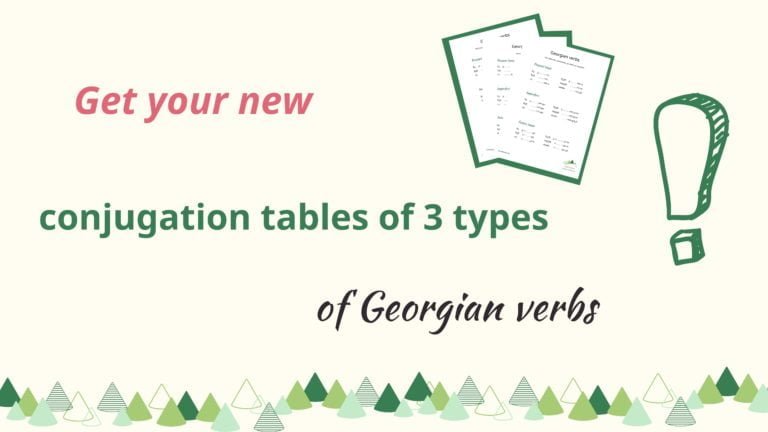The verb „to be” is irregular, so there are almost no rules of other verbs that you’ll apply here. Let’s learn it together and use it correctly. You will already know it after reading this article.
Just to remind you the infinitive of the verb to be in Georgian is ყოფნა. In case you do not know this verb at all, even in present tense, from this post you’ll learn the conjugation of the verb to be in present. You may read it as the first one or come back to the basics after reading today’s article.
How does the verb "to be" conjugates in past tense?
Before we dive into the examples how to use this verb, let’s first learn its conjugation:
მე ვიყავი
შენ იყავი
ის იყო
ჩვენ ვიყავით
თქვენ იყავით
ისინი იყვნენ
What can you say instantly looking at it? First of all, that the subject remains in the 1st case. As you maybe already know it is typical for all the Georgian verbs. You may compare the verb to be with e.g. to have.
Secondly, as the verb is irregular, there are not many similarities with its present form (unfortunately). What is to some extend similar with other verbs (e.g. to work) are the personal markers.
When to use the verb "to be" in past tense?
There is one piece of great news that I have here for you. There is only one past form of the verb „to be”, no matter if it’s past simple or imperfect. Always, when talking about past you’ll use above mentioned conjugation.
Therefore, in case you want to say you were somewhere yesterday or e.g. in your childhood you were often in the park, you’ll use the same form of the verb „to be”. That’s good news, isn’t it?
Here we have prepared some example sentences with this verb that may be useful in your daily conversations in Georgian.
- Where were you? – სად იყავი?
- Yesterday I was in office. – გუშინ ოფისში ვიყავი.
- Were Maia and Salome in Batumi or Kutaisi? – მაია და სალომე იყვნენ ბათუმში თუ ქუთაისში ?
Last but not least, the exercise for you!
Write down 2-3 sentences with this verb in past tense. Post it in the comments or send us as a reply to The Caucasian Mail newsletter. We’ll check the sentences for you.

